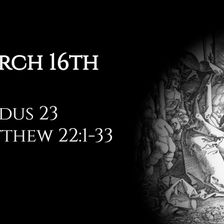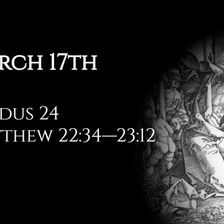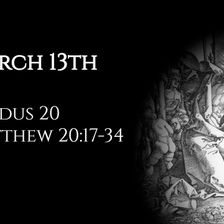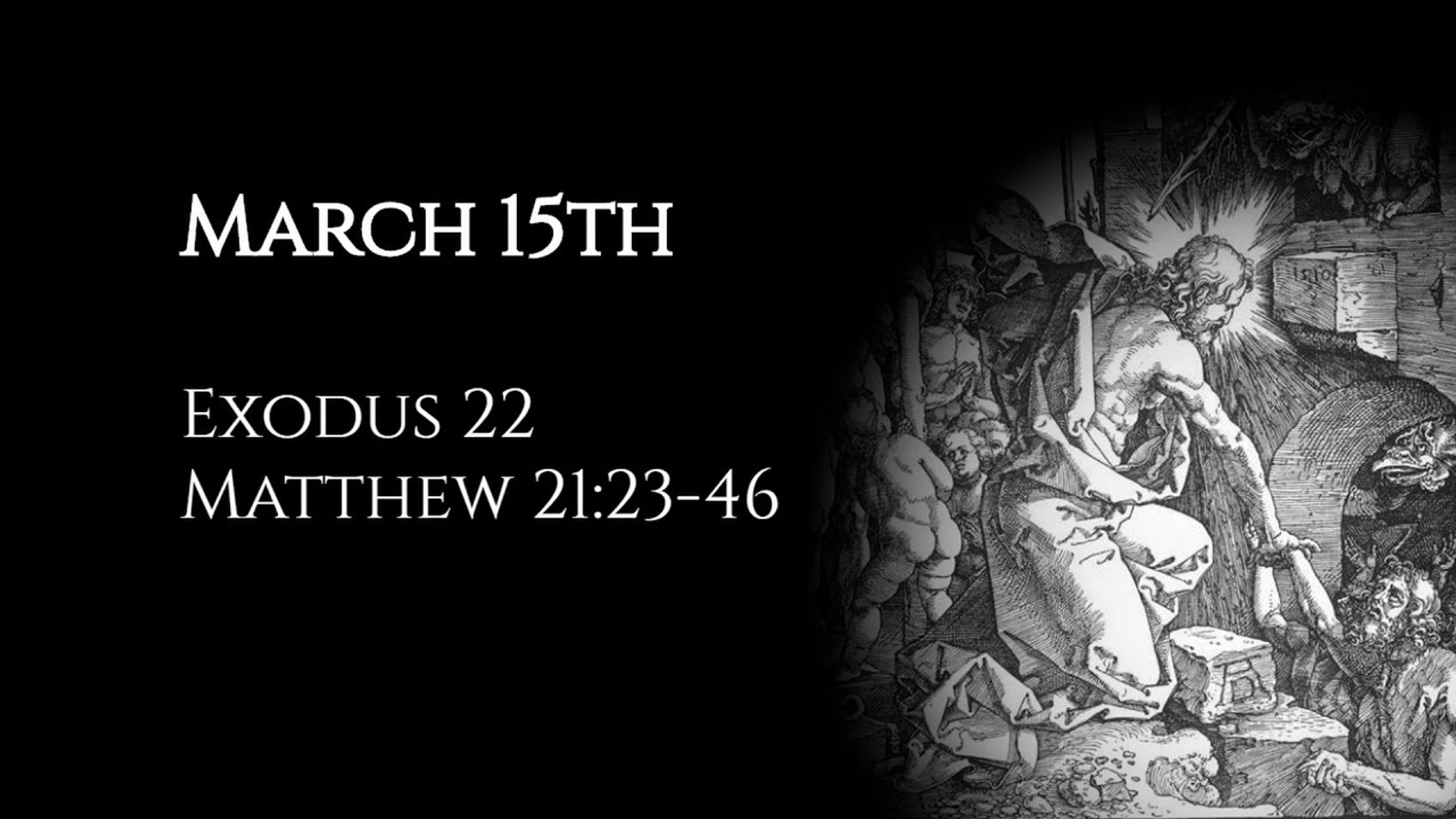March 15th: Exodus 22 & Matthew 21:23-46

Book of the covenant: laws concerning theft, sexual and spiritual faithfulness, and oppression. The parable of the wicked tenants.
Some passages referenced:
Exodus 34:11-16 (intertwining of sexual and spiritual faithfulness).
Isaiah 5, Psalm 80 (Israel as the vineyard); Genesis 37:18-20 (killing the son and heir); Psalm 118:22-23 (the stone that the builders rejected); Acts 4:11, 1 Peter 2:4-7 (use of Psalm 118:22-23 elsewhere in the New Testament); Isaiah 8:14-15 (stumbling stone); Daniel 2:44-45 (the crushing stone of the kingdom of God).
Reflections upon the readings from the ACNA Book of Common Prayer (http://bcp2019.anglicanchurch.net/).
If you have enjoyed my output, please tell your friends. If you are interested in supporting my videos and podcasts and my research more generally, please consider supporting my work on Patreon (https://www.patreon.com/zugzwanged), using my PayPal account (https://bit.ly/2RLaUcB), or by buying books for my research on Amazon (https://www.amazon.co.uk/hz/wishlist/ls/36WVSWCK4X33O?ref_=wl_share).
The audio of all of my videos is available on my Soundcloud account: https://soundcloud.com/alastairadversaria. You can also listen to the audio of these episodes on iTunes: https://itunes.apple.com/gb/podcast/alastairs-adversaria/id1416351035?mt=2.
More From Alastair Roberts






More on OpenTheo















